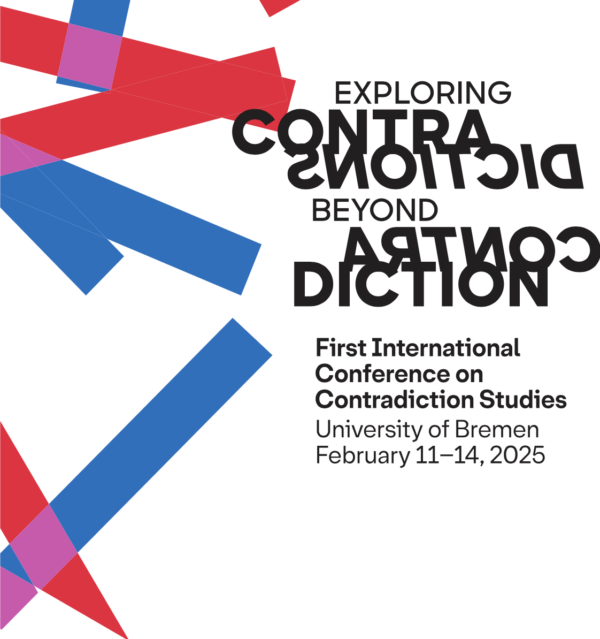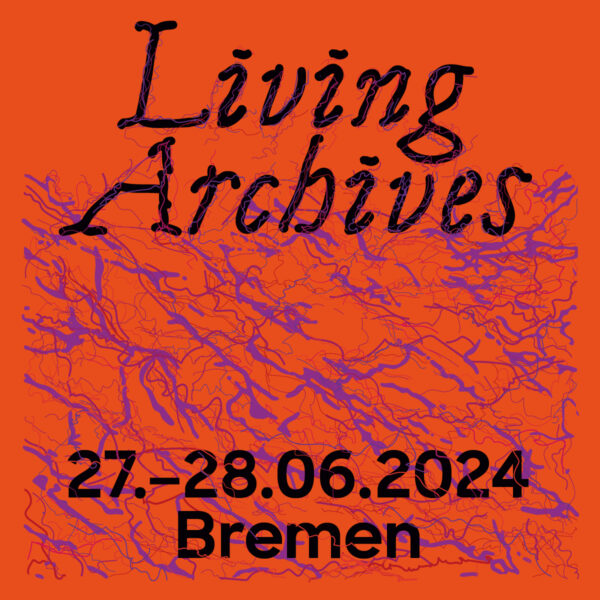Konferenzen
Vergangene Termine
-
 Exploring Contradictions beyond Contradiction
Exploring Contradictions beyond ContradictionContradictions are omnipresent and the identification of contradictions is usually accompanied by the imperative to resolve them. Contradictions can be ascribed to individual actions as well as to social formations. They extend to all areas of life: political orders, academic settings, religious practices and many more fields that are permeated by them. Without contradictions, there are no pluralities and no truths. Nevertheless, there is a long and powerful (especially European) tradition of problematizing and resolving contradictions and reducing them to logical incompatibility. This tradition of avoiding contradiction is countered by alternative concepts of thinking contradiction, above all in dialectics or paraconsistent logic (Priest/Tanaka [1996]2022). Contradiction Studies take up this reflection and move away from the widespread negative assessment of contradiction (cp. Febel/Knopf/Nonhoff 2023; Lienert 2019; Lossau/Schmidt-Brücken/Warnke 2019; Nintemann/Stroh 2022; Warnke/Hornidge/Schattenberg 2021). In this sense, our conference aims to explore contradictions beyond contradiction.
-
 ESF Conference „Territory, Tension & Taboo“
ESF Conference „Territory, Tension & Taboo“Tagung: „Territory, Tension, and Taboo: Canada in Crisis“ – Nachwuchsforum, Gesellschaft für Kanada-Studien (GKS)
-
 „Living Archives“ Geschichte und Gegenwart intersektional-feministischer Bewegungen in Theorie und Praxis
„Living Archives“ Geschichte und Gegenwart intersektional-feministischer Bewegungen in Theorie und PraxisTagung der Sektion „Politik und Geschlecht“in der Deutschen Vereinigung für Politikwissenschaft in Kooperation mit dem DFG-Graduiertenkolleg „Contradiction Studies“ und dem Forschungsverbund „Worlds of Contradiction“. Der 15. Sprecher*innenrat der Sektion „Politik und Geschlecht“ in der DVPW (Deutsche Vereinigung für Politikwissenschaft) veranstaltet anlässlich des 30-jährigen Bestehens der […]
-
 Streit als Chance? Kommunikative Praktiken des Streitens als Vehikel sozialer Aushandlung
Streit als Chance? Kommunikative Praktiken des Streitens als Vehikel sozialer AushandlungDie Konferenz ist interdisziplinär ausgerichtet, weshalb die Vorträge u. a. aus den Bereichen der Sprach- und Literaturwissenschaften, der Kulturwissenschaften sowie den Erziehungswissenschaften gehalten werden. Da es sich um eine Studierendenkonferenz handelt, werden die Vorträge ausschließlich von Studierenden und Promovierenden gehalten. Das Anschauen der Vorträge richtet […]
-
 Black Atlantic Affordances. Contested Memory Cultures
Black Atlantic Affordances. Contested Memory CulturesDr. Deborah Nyangulu and Dr. Jana Weiss convened the ‚Black Atlantic Affordances. Contested Memory Cultures` conference at the University of Texas at Austin from Feb 23 – 25. The event featured a range of speakers who engaged with, among others, questions of Black freedom, memory […]
-
 Diskurs interdisziplinär 12. Discourses in/of Disruption
Diskurs interdisziplinär 12. Discourses in/of DisruptionDas Tagungsnetzwerk „Diskurs – interdisziplinär“ bietet ein Forum, auf dem Vertreter*innen der Linguistik, der Soziologie, Politologie, Philosophie, Literaturwissenschaft, Geschichtswissenschaft und anderer kulturanalytisch arbeitender Wissenschaften die Perspektive ‚Diskurs‘ je fachspezifisch und fachübergreifend, disziplinär und interdisziplinär, reflektieren und diskutieren. Diese Idee setzt voraus, dass eine zentrale die […]
-
 Political Theory in Times of Uncertainty
Political Theory in Times of UncertaintyPolitische Theorie in Zeiten der Ungewissheit
-
 DeMarg 5: Tracing Forms of De/Marginalization
DeMarg 5: Tracing Forms of De/MarginalizationKonferenz des European Network on Discourses of Marginality and Demarginalization (DeMarg)
-
 Inhalt und Ziele von Toolbox und Kolloquium
Inhalt und Ziele von Toolbox und Kolloquium